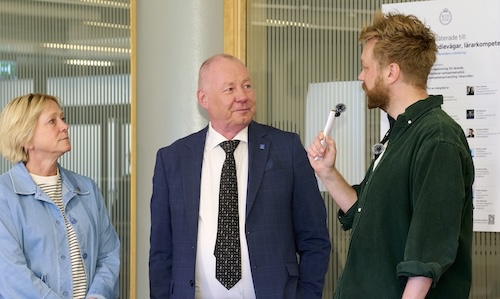Projects within Future Education at KTH

The Future Education development programme at KTH currently includes approximately 75 projects (approximately 25 per year have been decided so far during 2023-2025) with different focus and scope. More projects will be added in 2026-2027. An important part of the programme's activities is to assess which project results/methods should be used throughout KTH and to support the work of scaling up and implementing them.
The projects in the portfolio that are funded may:
- be implemented by units at different organisational levels (e.g. KTH's schools, Student Union – THS, University Administration – VS, or at a more KTH-wide level),
- have been initiated and become part of the project portfolio in different years (2023-2027),
- have very different scope and time plan (duration less or sometimes more than a year).
